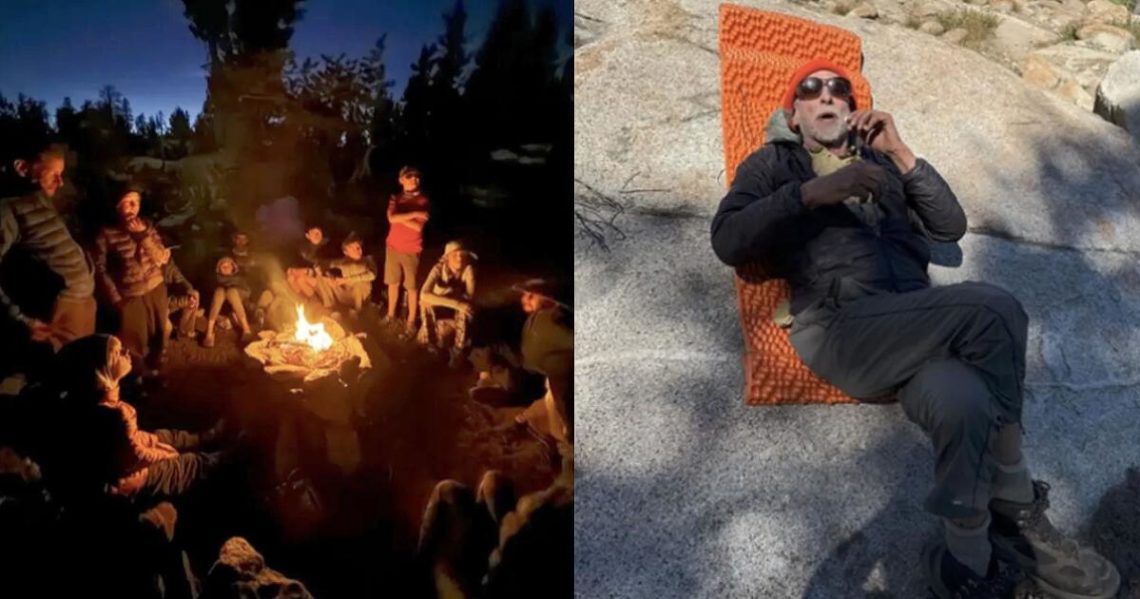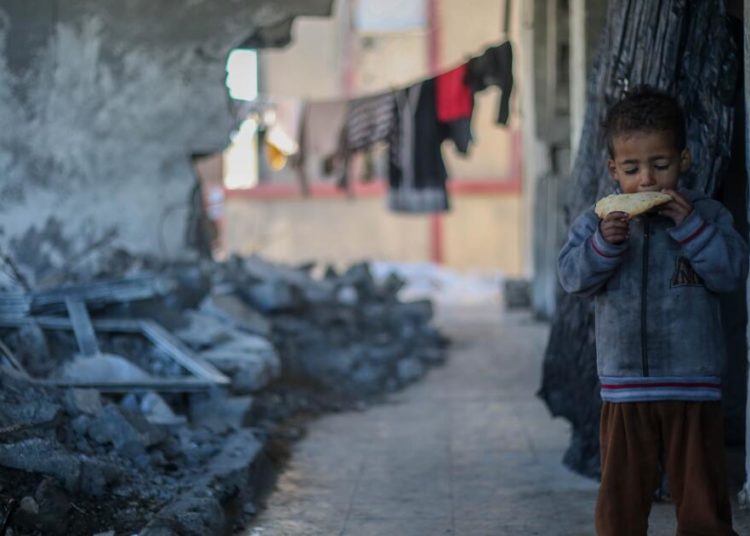At first, Charlie Hey, 12, didn’t think much of it when his Boy Scout troop passed an elderly man standing at the edge of a trail deep in the Emigrant Wilderness.
The man, Douglas Montgomery, 78, was lightly dressed for the conditions in the high Sierra and, more curiously, was carrying no water.
“I thought, ‘Oh, he’s doing a day hike,’” Charlie said.
Following a few steps behind the boys, Scoutmaster M-J Hey —Charlie’s father— wasn’t too alarmed either, at least initially. “He didn’t look like he was in major distress,” the elder Hey recalled.
But Hey had training in search and rescue, so he struck up a conversation with Montgomery and asked a few important questions. Among them, he recalled: “Mate, have you got a backpack?”
Montgomery’s story was a long one. It touched down in places such as Vietnam and Alaska and ended with a helicopter ride to safety for Montgomery and a sober but ultimately uplifting lesson in wilderness survival rules for Troop 26.
Montgomery was highly experienced in wilderness survival and a former scoutmaster himself. But on this trek he had lost his pack and was at the mercy of the elements ever since, hungry, dehydrated and shivering under a bed of needles. He was having trouble walking when Troop 26 arrived.
“It really hits home,” Charlie said. “Wow, this can happen to anybody.”
“It’s true,” Montgomery agreed in a recent interview. But, he added, the trip also contained an important—albeit rueful—lesson for him. “I allowed myself to lose my pack,” he said. “I am 78 years old, so I shouldn’t be out there, but I love it so much, I couldn’t give it up until it was proved I couldn’t do it anymore.”
The nine boys of Troop 26 set off on Aug. 2 for a six-night trek through the high Sierra north of Yosemite. On day four, the boys –- along with five adults -–were heading up from their campsite near Long Lake when they came upon Montgomery.
As Montgomery tells it, he had fallen into a lake, hurt his neck, and gotten soaked. He climbed into his sleeping bag without dinner, because he knew it was more important to warm up before the cold of night descended than it was to eat. The next morning, he said, he had breakfast and then took off his pack — with all his survival gear, including a rescue device — to scout his way.
Then, somehow, he lost his pack and walked miles in the opposite direction of where he thought he was heading.
He spent a cold night in the elements, cushioning himself with pine needles.
“When the sun came up,” he said, he realized “I couldn’t walk. Being cold all night made it impossible for me to walk. I had to wait for the sun to come and hit me before I could walk.”
“I was getting colder and colder,” he said. “And that’s when [Troop 26] came along.”
Montgomery said he figures he probably would have been OK no matter what. He was back on the trail, and there were lots of people in the area who could have come along and helped him.
Hey’s take? Montgomery’s situation was a bit more critical.
Once he began talking to Montgomery, Hey said, “all the flags started going up for me.” Montgomery wasn’t “fully coherent,” Hey said, was miles from where he thought he was and appeared unsteady on his feet.
Hey is British and spent his childhood training with the Royal Air Force before relocating to Santa Barbara after a career in the oil industry. He said he quickly determined that they needed to get the man out of the wilderness.
The question was how. He sent the boys of Troop 26 on to their next campsite with three of the leaders. He and Orin Rowe, the troop’s assistant scoutmaster, stayed behind to make a plan.
They helped Montgomery settle on a rock in the sun to warm up, gave him food and electrolytes the Scouts had donated from their supplies and used their Garmin satellite system to summon help.
(This also triggered an alert to Hey’s wife. Fearing this could cause panic among the parents of Troop 26, Hey sent more messages via satellite to keep things calm.)
Communicating with rescuers, Hey gave a careful account of Montgomery’s condition, including the prescribed medications he had been without since losing his pack. The California Highway Patrol dispatched a helicopter.
While they waited, Hey and Montgomery traded stories.
Montgomery, in a tale also recounted in Santa Barbara Independent, told Hey he was on a two-week solo backpacking trip when he lost his pack and then his sense of where he was.
He had lived the kind of life that would lead him to believe such a trip at altitudes of 9000 feet was a reasonable feat to attempt at age 78. As recounted by Hey and the Santa Barbara Independent, Montgomery had backpacked or cycled across South America, including Argentina and Chile, and across Asia, including India and the Himalayas. He has also conquered almost every mountain range on the West Coast.
It was fitting that he was rescued by Boy Scouts in the mountains so close to home. He was an Eagle Scout in his youth and then a scoutmaster. “Troop 10 in Burlingame,” he told the Santa Barbara Independent. “We took Scouts into the Emigrant Wilderness for about 20 years.”
While Hey and Rowe waited with Montgomery for the rescue helicopter, the boys of Troop 26 continued on to Toejam Lake, where they set up camp. Charlie said they saw the helicopter swoop low, land, and fly off again with Montgomery. His niece met him on landing back near a highway. He recovered enough to get himself home to San Francisco.
Rowe and Hey made it to Toejam Lake soon after. They sat around the campfire that night talking about the remarkable life of the man they had rescued and the lessons to be learned from his plight.
“The scary part was he was in real need of help,” said Charlie, marveling at how even someone with so much experience and training could fall into so much peril when separated from essentials.
Hey, who spends hours figuring out how to prepare his Scout troop for their adventures, said he couldn’t have designed “a better scenario to make the training very visceral and real.”
“It’s a powerful lesson on the importance of being prepared for the perils that can so readily happen in the wilderness,” he said. “And no matter what situation you’re in, you [should] always have your [survival] essentials on your body.”
It was also “a story they will carry for the rest of their lives.”
For his part, Montgomery said, he was thrilled to see Troop 26, both because they rescued him, and because he believes it is so important to teach young people “how to live in the wilderness.” Such lessons not only open up the magical world of mountain vistas, but they also teach responsibility and self reliance back in civilization.
“Thank you to Troop 26,” he said.
The post Boy Scout troop rescues 78-year-old lost in the Sierra without food, water, shelter appeared first on Los Angeles Times.




